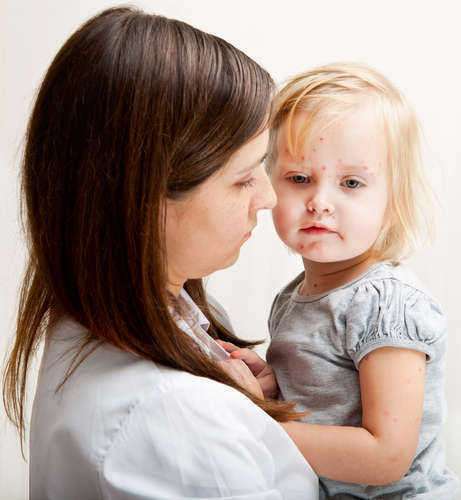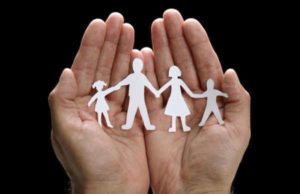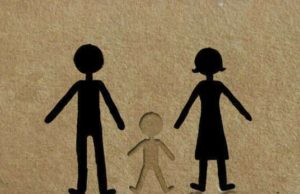
Single Mothers: Balancing Family, Work and Society
Single motherhood is a significant issue in society today. The image of the working single mother has become a common sight, as more and more women opt to raise their children alone. According to the U.S. Census Bureau, there are approximately 9.9 million single mothers in America, and this number continues to grow. In this article, we will explore the role of single mothers in society, the challenges they face, the support and resources available to them, and the impact of single motherhood on children. We will also include updated information using government resources.
The Role of Single Mothers in Society
Single mothers play an essential role in society, contributing to the workforce, raising children and supporting themselves and their families. The number of single mothers has been increasing steadily over the past few decades, and they have had to adapt their lives accordingly.
Single mothers are often forced to balance work and family life on their own, which can be a significant challenge. Some women choose to become single mothers through adoption or sperm donation, while others become single mothers due to a divorce or the death of a spouse. Regardless of the circumstances, single mothers have developed creative solutions to their unique challenges.
The Challenges Faced by Single Mothers
Single motherhood poses both financial and emotional challenges for women. One of the biggest obstacles facing single mothers is balancing work and family life. Single mothers often work long hours to support their families, which can make it difficult to spend time with their children.
In addition to financial challenges, single mothers also face emotional challenges. Raising children alone can be emotionally demanding, and single mothers can feel overwhelmed and isolated. The lack of a partner for emotional and physical support can be difficult, too.
Another challenge faced by single mothers is the stigma that comes with being a single parent. Society often views single mothers as irresponsible, unwed, and solely responsible for their situation. However, most single mothers work hard to provide for their families and are committed to raising their children to the best of their ability.
Support and Resources Available to Single Mothers
Fortunately, there are resources available to help single mothers navigate these challenges. Many organizations provide financial and emotional support to single mothers. Programs such as Temporary Assistance for Needy Families (TANF), the Supplemental Nutrition Assistance Program (SNAP), and the Women, Infants and Children (WIC) program provide financial assistance. These programs help reduce the financial burden of raising a child alone.
In addition to financial support, there are also support groups for single mothers. These groups provide a supportive community and resources to help single mothers navigate the challenges of raising children alone. They also offer a place for single mothers to discuss their experiences with other women who understand what they’re going through.
Education and training opportunities also provide a way for single mothers to enhance their career prospects and improve their financial situation. Many community colleges and universities offer programs specifically for single mothers, such as online courses, flexible class schedules, and daycare services.
The Impact of Single Motherhood on Children
Raising children alone can be challenging, but studies have shown that single motherhood can have positive effects on children, too. Children of single mothers often develop strong bonds with their mothers, and they learn independence and resilience. They also learn to take responsibility for their actions and to be supportive of those around them.
Children of single mothers may face challenges such as poverty, lower academic achievement, and emotional difficulties. However, studies have also found that children of single mothers are just as likely to succeed in life as those with two parents. The quality of parenting, not the number of parents, is the most important factor in a child’s success.
Single mothers play a crucial role in society, and they deserve support and resources to help them overcome the challenges of raising children alone. The stigma of single motherhood must be challenged, and society must recognize the valuable contribution of single mothers. Children of single mothers have the same potential for success as those with two parents, and single mothers deserve respect and admiration for their hard work and dedication.
Conclusion
Single motherhood is both a challenging and rewarding experience. Society must recognize the value of single mothers and provide support and resources to help them overcome the challenges they face. With financial assistance, emotional support, education and training opportunities, and community support, single mothers can give their children the best possible start in life. The role of the single mother in society is critical, and we must recognize and support their contribution to society.
What is a Single Mother?
Single mothers are parents who care for one or more children without the physical assistance of the other biological parent. The definition and the legal aspects associated with single mothers may vary according to jurisdictional laws of different regions.
The presence of single mothers may arise for a variety of reasons; typically single mothers assume sole responsibility of their child following an adoption, a divorce, artificial insemination, surrogate motherhood, or the result of an unforeseeable occurrence, such as child abuse, child neglect, abandonment, or the death of the biological father.
Single mothers are responsible for the day to day responsibility of raising the child or children. Depending on the circumstance, a single mother is awarded sole-custody of the child. As a result of this placement, the single mother has the right to receive welfare through government subsidies or child support payments from the biological father. The federal government institutes various programs to alleviate the burden of single mothers; welfare assistance, alimony, food stamps, and other forms of relief are offered to single parents to mitigate the hardships associated with caring for a child.
In addition to the aforementioned forms of relief, both state and federal governments may offer grants, scholarships, and loans to single mothers in need. These programs are offered to help further the single mother’s education as well as provide a form of financial relief to aid in the da to day responsibilities of the child.
















